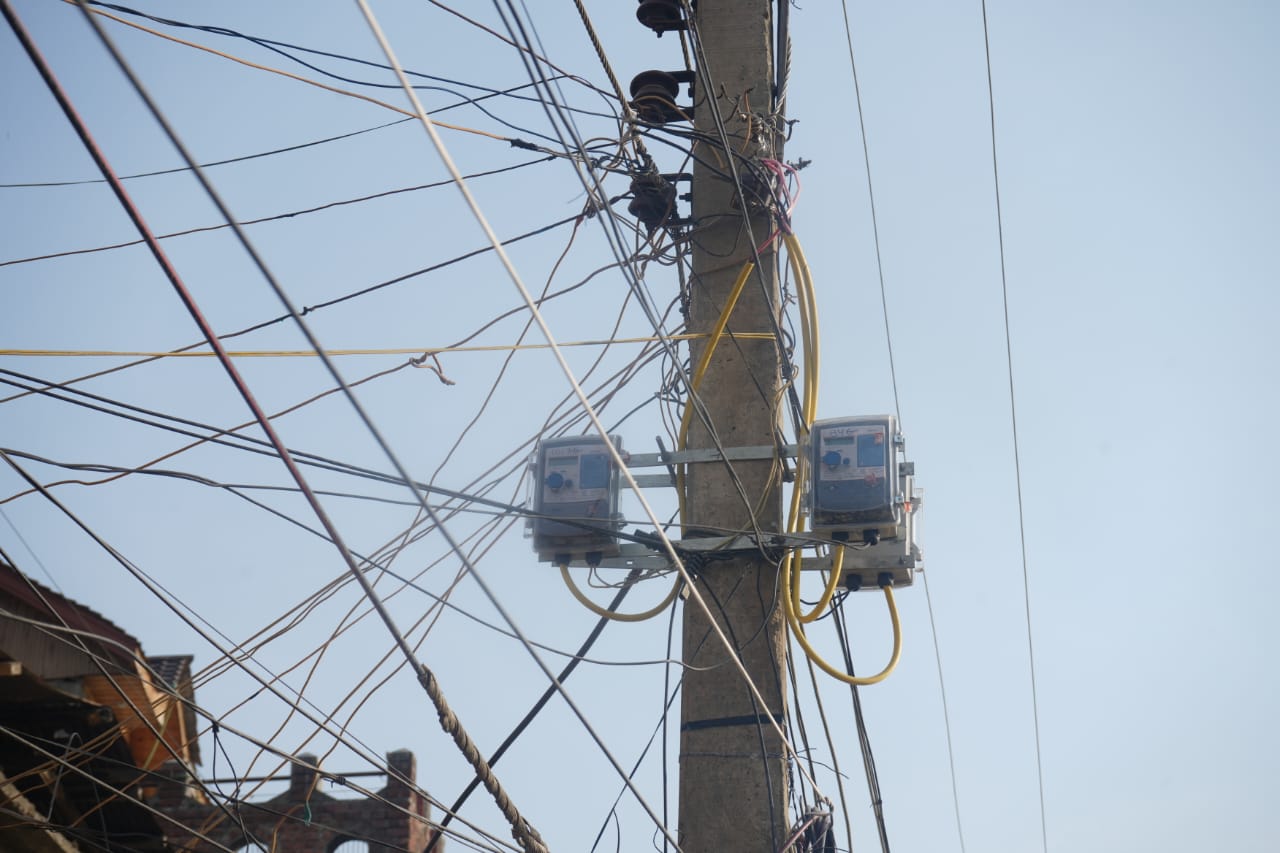Hameeda was part of the disconcerted homemakers drumming up the defiance against the ongoing ‘smart’ drive in Srinagar. Anticipating some quick “rethink” in official ranks, the group of urban poor and middle-class gathered to flay the state of affairs in the valley.
In the folk-singing style, Hameeda raised the voice against the drive and registered yet another demonstration against the ‘current campaign’.
The mother of two, whose husband is a cart-puller—perpetually struggling to ground his mobile store due to frequent cop and municipal raids—likened the smart meter with a blood-sucking move.
“The administration is resorting to anti-people moves,” Hameeda expressed her rage over the electrification drive drawing ire in urban pockets. “We people have faced crippling conditions since 2019 and yet these men at helm are showing no sign of community compassion.”
The resistance against the power drive earlier erupted from the uptown — where people called it a “taxing bill”. But Kashmir’s power department has so far brushed aside the brouhaha, arguing that the motive is to provide “best and efficient” electricity.
 Smart Meters installed on a Power Grid, Photograph By Zubair Hameed
Smart Meters installed on a Power Grid, Photograph By Zubair Hameed
The drive started in 2022 and in its first phase, Kashmir Power Distribution Corporation Ltd (KPDCL) installed 26000 meters in the valley. But the move triggered public annoyance. However, the KPDCL hasn’t stopped the drive despite the opposition.
“During the installation, the power corporation only provides the wiring connection between the smart meters and high-tension wires,” says Adnan Nazir, a local consumer from Srinagar. “We’ve to buy our own wires to install these smart meters in our houses and in business establishments. This whole process is taxing us.”
Apart from this, Adnan says, these meters annoy people with beep sounds and restrict power supply upon using heavy-power consuming equipment.
The bigger issue is still the affordability of this meter giving an ordinary grocer like Abdul Rehman a real hard time. “Three electric bulbs in my shop would consume barely 17 units per month,” he says. “But now, the smart meter has hiked my tariff to 88 units per month. If this continues, I’ll cut down my power supply connection.”
Compared to other states, Jammu and Kashmir is considered as a major power generating hub in northern India. The region has nearly 20 power hubs which generate thousands of megawatt of energy. The hydropower is not only utilized in Jammu and Kashmir but also sold to other neighboring states.
“We were promised 24*7 electricity supply by the power corporation time and again,” says Asif Saleem, a consumer from Srinagar. “But despite installing this meter, that promise remains unfulfilled.”
Having said that, Asif says, the smart meter may have its merits, but it lacks good infrastructure and potential wiring systems.
Amid ire and incensed public response, Javid Yousuf Dar, Chief Engineer KPDCL, told The Himalayan Post that there is no major difference between ordinary and smart meters.
“We used to get manual reading by ordinary meters,” he said. “But now with smart meters, we’re getting advanced and automatic reading on server based.”
The chief engineer said there is no hike in monthly bill charges and people are being charged according to their consumption rate.
“In smart meters there is no chance of deception,” he said. “People have to buy service lines of their own. These service lines are subject to the consumer’s own property.”
But Hameeda and the band of women protesting against the smart installation aren’t buying these official explanations. “Somehow these officials have come to think of Kashmiris as some Arab Sheikhs,” she said. “That’s why they are resorting to these tactics to drain our pockets every now and then.”
Nobody is denying the importance of this smart drive, the homemaker said. “But the government should at least consider the crippling conditions through which Kashmiris have passed in recent years. Instead of helping us grow, the government is bent to escalate our survival crisis. This is unacceptable. Has the chair gone rogue in Kashmir?”